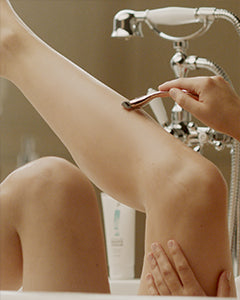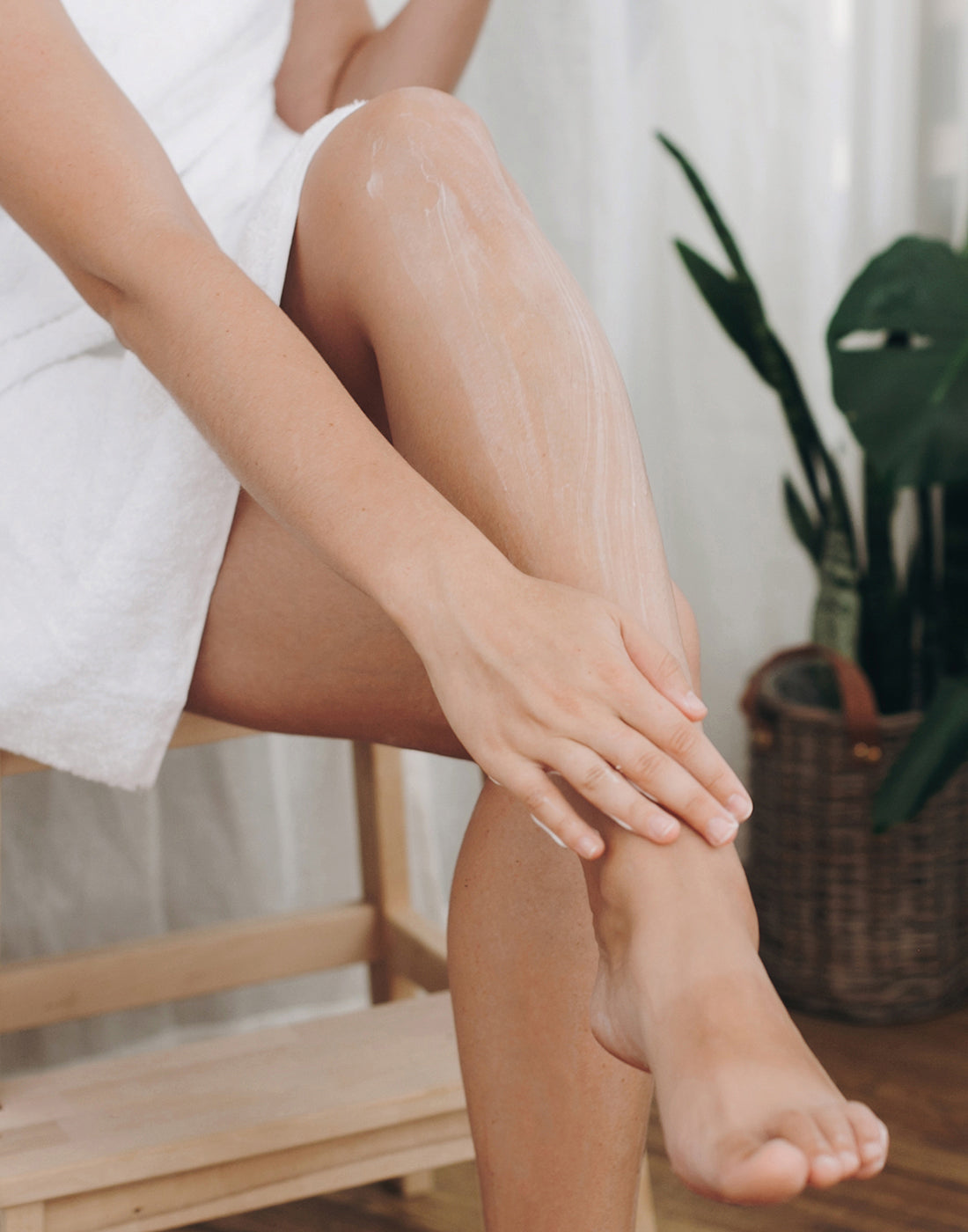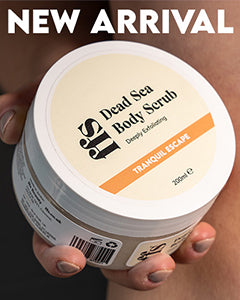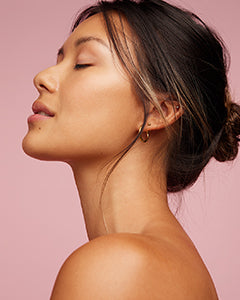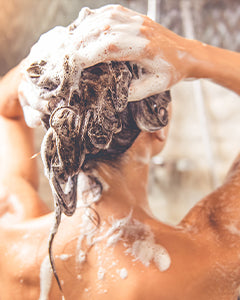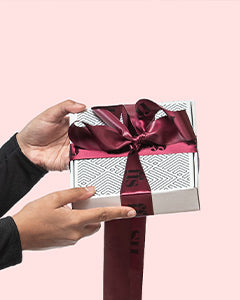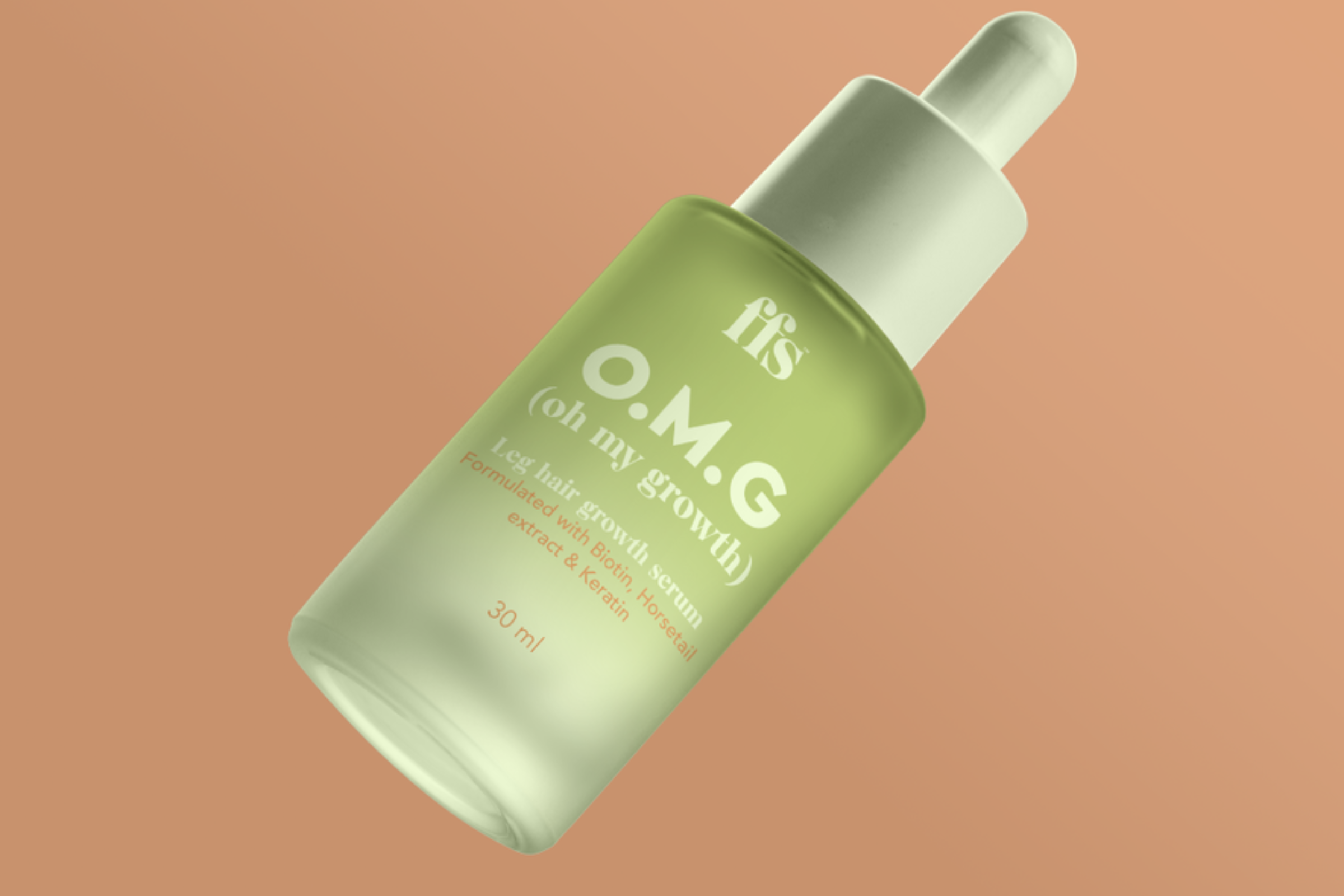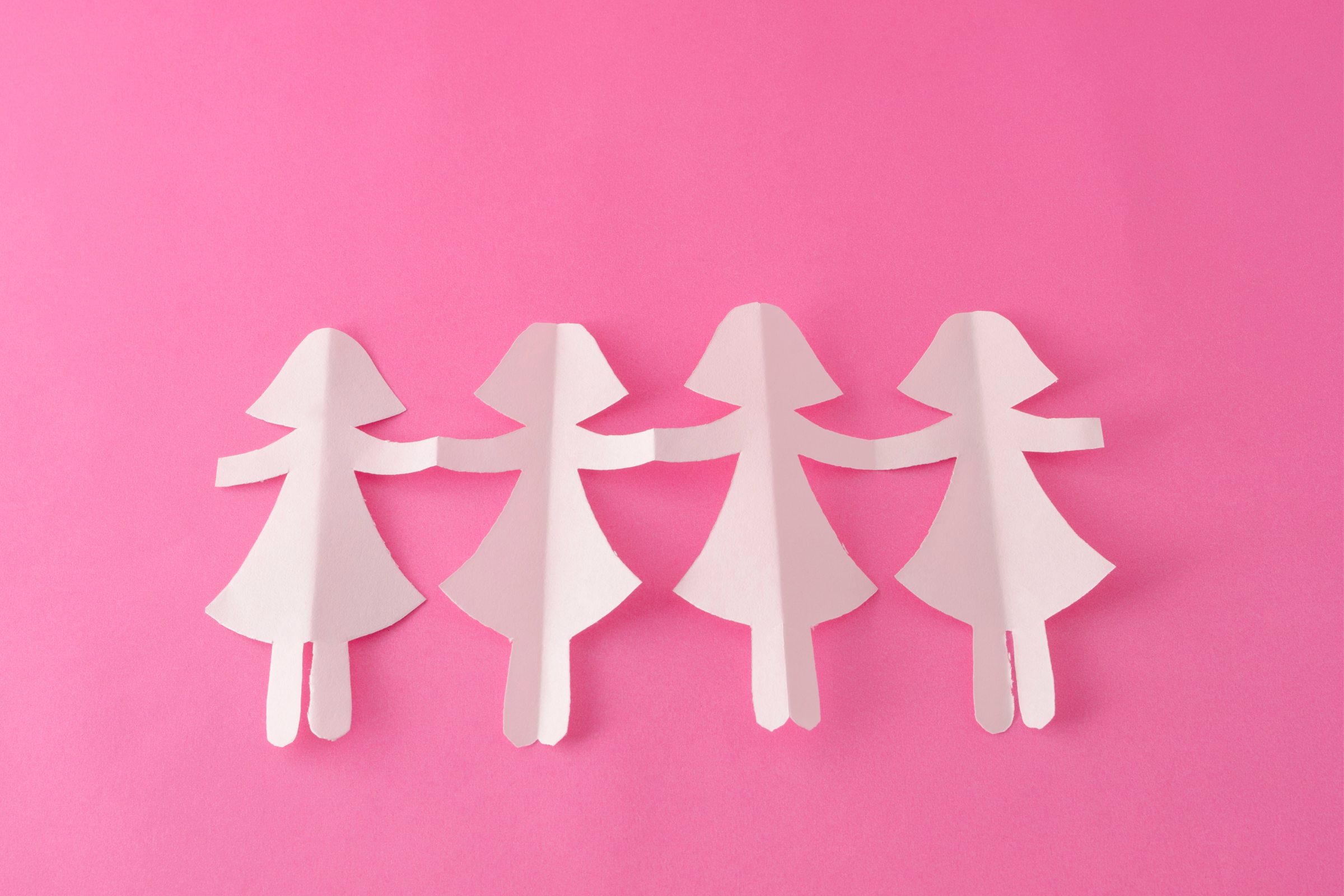Hey gals! Let's talk about female facial hair, also referred to as hirsutism. You might have heard of it before, but in case you haven't, hirsutism is a fancy medical term for excessive hair growth in women. And we're not talking about just any hair - we're talking about thick hair in places where it's not usually found, like on the face, chest, and back. Yeah, we know, the type of hair women typically have been led to believe they should feel embarrassed or ashamed about, but no shame here, it's a common condition and we're here to help you understand it better. So, grab a cup of tea, get cozy, and let's dive in!
Hirsutism pronunciation
Firstly, how do we even say Hirsutism? It is pronounced (HUR-soot-iz-um), simple!
What is Hirsutism?
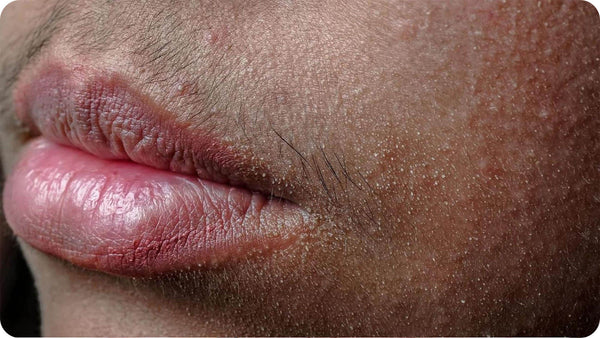
If we define Hirsutism, it is essentially the medical term for a condition experienced by women that causes growth of thick dark hair usually on the face, neck, chest, tummy or lower back. But in reality, it is just a fancy way of saying “Hey girl, here's some unwanted facial hair!”.
What causes Hirsutism
Androgens! What are they we hear you ask? They are a group of sex hormones which predominantly play a role in your reproductive health and body development. Sometimes the level of these hormones increases, or you can begin to experience increased sensitivity to them. This is when Hirsutism can occur. Typically, the most common cause of Hirsutism is Polycystic Ovary Syndrome (PCOS). This condition affects the ovaries and comes with other symptoms such as weight gain, irregular periods, acne, and excessive hair growth. In rarer circumstances it can also be caused by medicines and anabolic steroids but sadly there is not always an obvious cause and can just be the luck of the draw and that’s okay!
Who does Hirsutism effect?
Hirsutism does not discriminate and can affect women of all types, typically, it effects between 5-10% of the female population. 6-12% Of the female population have PCOS, and 70% of those experience Hirsutism as a symptom.
Does Hirsutism mean I have PCOS?
No, while Hirsutism can be a symptom of polycystic syndrome (PCOS) not all women experiencing Hirsutism have PCOS, or any other linked conditions. It could be hereditary, and you have been born with hair follicles that are more sensitive to Androgens, but we recommend you consult your Doctor to find out if there is an underlying cause to your Hirsutism. The NHS recommend you see a GP if:
“you're a woman and you have thick, dark hair on your face, neck, chest, tummy, lower back, buttocks or thighs
The GP will check what's causing the hair growth.
You may have a blood test to measure your hormone levels. A change in your hormone levels is a common cause of hirsutism.” (NHS, 2023)
Can Hirsutism be treated?

Other treatments recommended by a GP may include:
1. Diet – Controlling weight and diet can help control hormone levels.
2. Removal – Using typical hair removal products such as shaving and waxing.
3. Growth – Slowing down growth through prescription creams..
4. Contraceptives – If you have not been through menopause, a contraceptive pill can help you control hormone levels to reduce the effects of Hirsutism.
Can hirsutism go away naturally?
There are things you can do to help control the hair growth. Firstly, seek medical advice, with treatment, this long-term condition can be well-managed. Its symptoms also typically fade as the body's production of androgens naturally decreases with age. If you are carrying extra weight, weight loss can also help decrease levels of androgens and lessen hirsutism, but again seek professional advice on how to do this safely.
Can female facial hair cause acne?
The short answer is unlikely. Males who grow beards can suffer from acne to a certain extent, because of the oil, dead skin cells and bacteria the longer hairs trap which leads to clogged pores which results in acne. For the average woman who suffers from Hirsutism, it is unlikely the hair growth itself will be enough to cause the same problems. Despite this, the hormones that contribute to Hirsutism could also cause an increase in acne too which may cause some to think there is a connection to hair growth and acne among women.
Best way to remove female facial hair?
The best way to remove facial hair depends on the individuals’ preferences, skin sensitivity and the type of hair being removed. The most common and simple way to remove facial hair in the home is through shaving or waxing. Alternatives could include threading and hair removal creams (ensure to patch test first). As a shaving specialist, we recommend exfoliating and shaving creams are used to ensure a skin-smooth shave with no irritation.
Does shaving make Hirsutism worse?
You’ve probably heard people say ‘Do not shave, it will grow back thicker’! Well that is a myth, shaving blunts the end of the hair therefore when stubble begins to grow through it feels thicker as their hair has not yet tapered off at the end. Shaving will not worsen your Hirsutism, neither will any other hair removal methods should you choose to use them.
Should I worry about Hirsutism?
Some women feel self-conscious about having unexpected hair growth. Some even develop depression and anxiety because of it. Also, although hirsutism doesn't cause physical complications, it can certainly affect your mental well-being. There are many women that choose to embrace their body hair we suggest following them on social media to surround yourself with positivity and people going through similar experiences, some of our favourites are @thatgirlsare and @queen_esie. Remember hair removal is always an individual choice, embrace it if you wish to, if not then look for the best and safest way to remove it for YOU.
Celebrities with Hirsutism
It’s not just us normal folk, here are some well-known faces who also experience Hirsutism:
Emma Watson

Known for her role as Hermine Grainger in Harry Potter, Emma Watson opens up to Into The Gloss about her hair and beauty routines, revealing she bleaches her top lip.
“you’d never get to see that, even though it’s a part of my routine. There’s still so much shame around the things you do to get ready while you've got a towel wrapped around your head. It’s important to me not to edit that out.”
Adele

One of the most successful singers of the 21st century revealed to a crowd during one of her live concerts that
“When I got pregnant I had so much testosterone in me that I grew a beard...I only cropped it last night. […] It's actually true. I'm not telling a joke. I actually have a beard, but I'm proud of it. I call it Larry.'”, (Daily mail, 2016).
Cardi-B

Someone who has never been shy discussing personal details of her life, Cardi B’s social media continues to showcase honest insights into her life, including insight into her body hair, (Womens Health, 2022).

